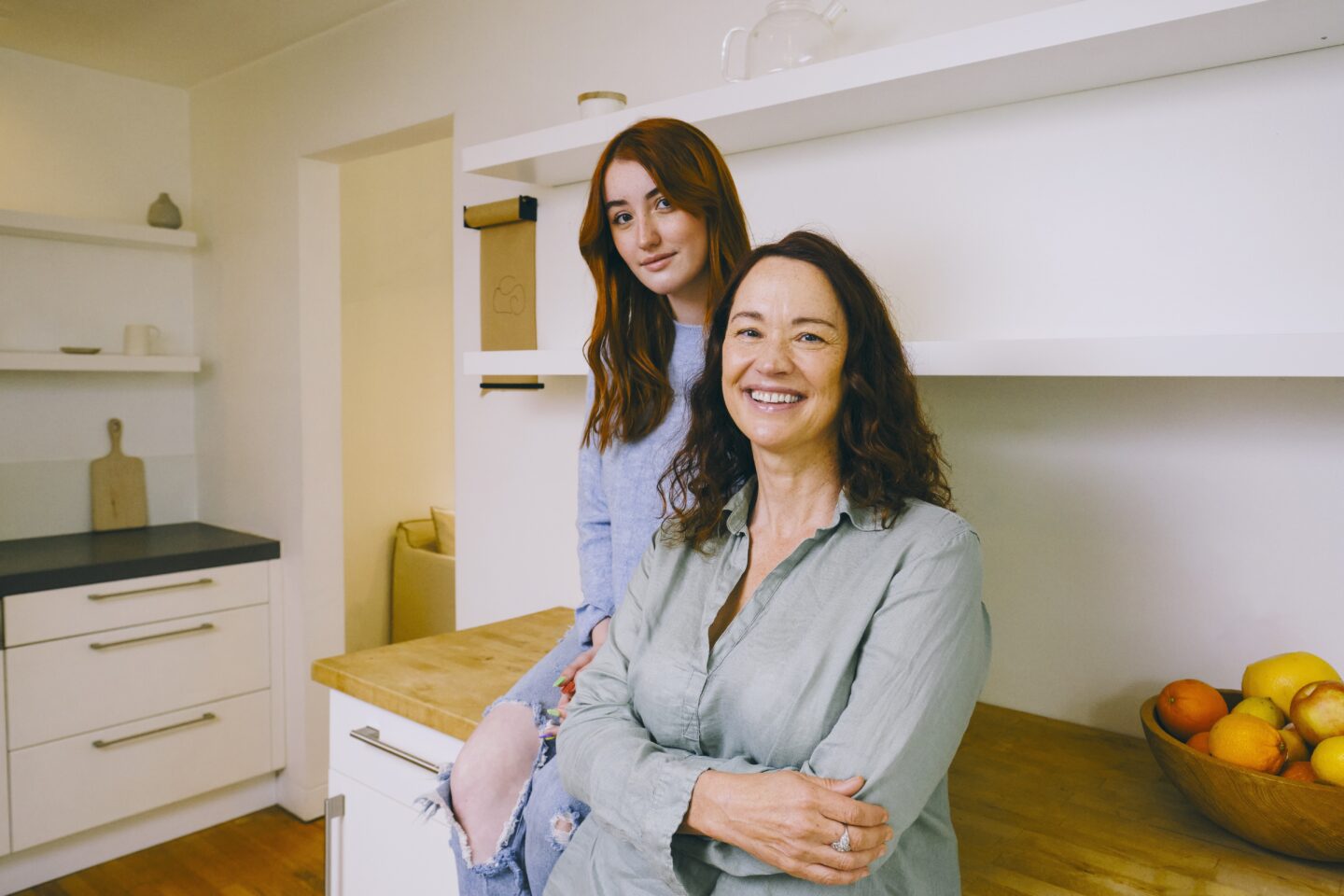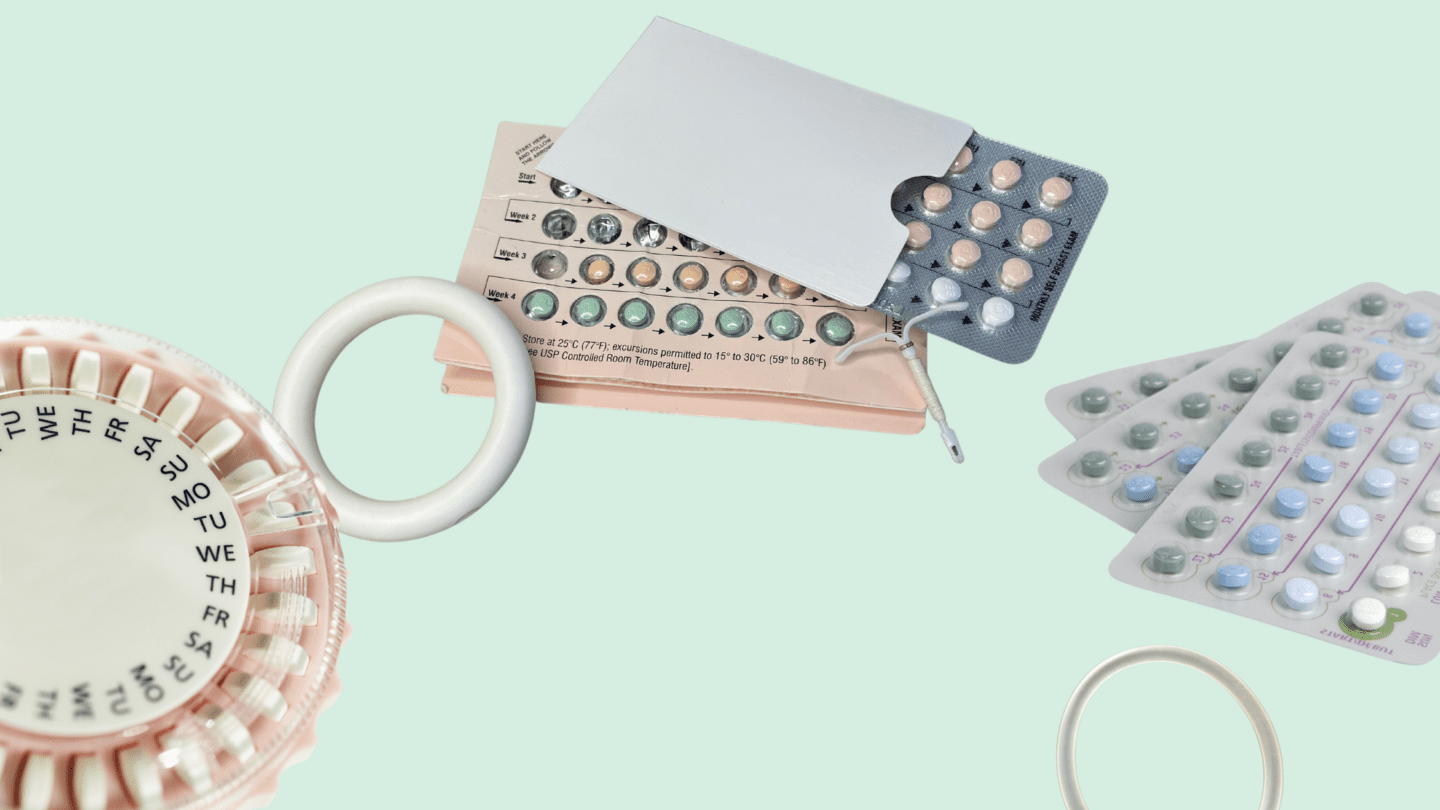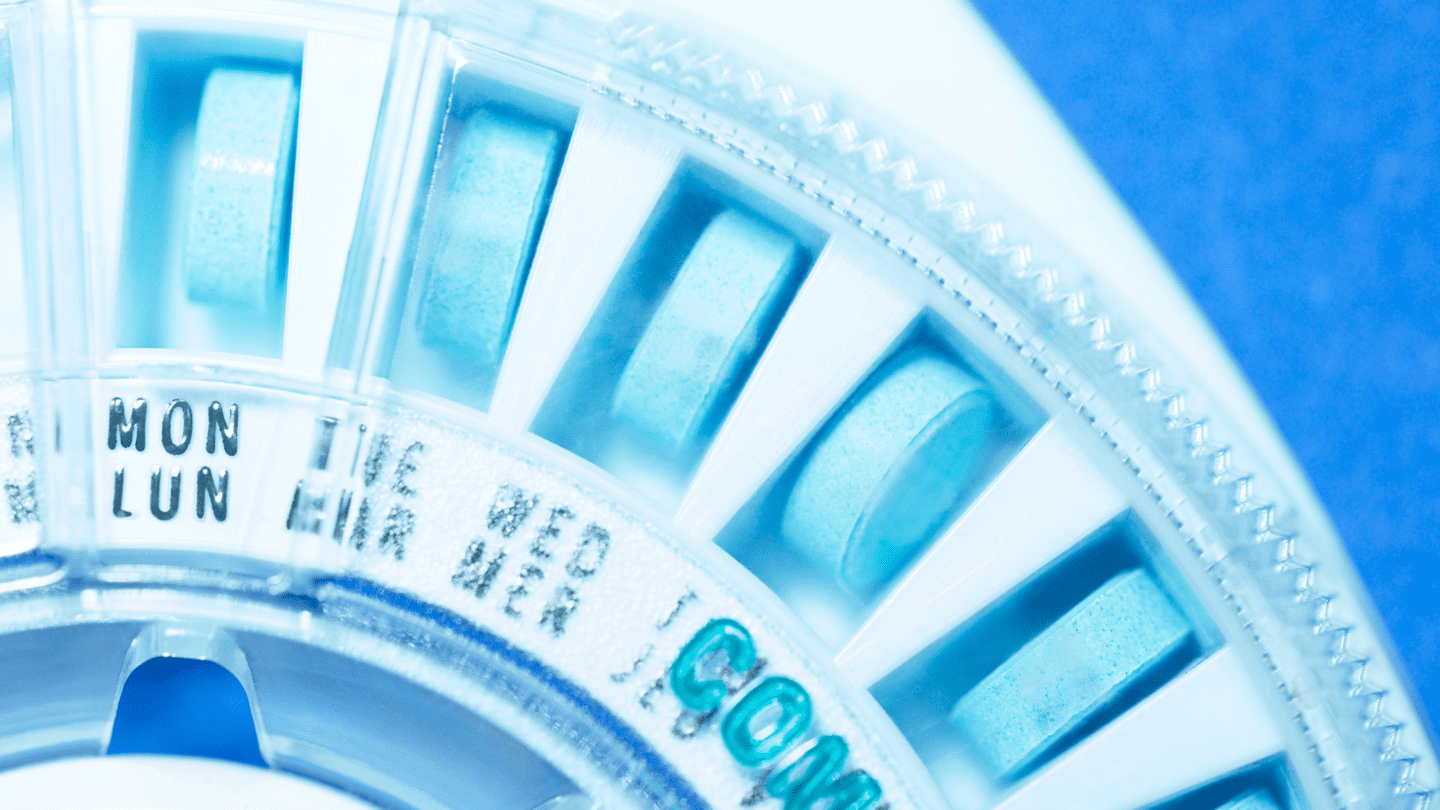As a parent of a teenager, or soon-to-be teenager, the topic of might come up soon (if it hasn’t already). And even if you haven’t talked with your teen about , it’s a subject that’s good to discuss. Hearing your teen’s thoughts, worries, and goals is the best place to start for an honest, open conversation about what means for teenagers.
The first thing to know is that is approved by the FDA for use by teens, and it’s safe for them to use.1 There are side effects to , but they’re the same for teens as for anyone else. That goes for emergency contraception like Plan B as well.
Taking doesn’t necessarily mean someone is ready to start having sex. Many people take as medicine for its side benefits, like helping with heavy or painful periods,2 treating (PCOS),3 and even managing acne.4 There are a lot of reasons to start taking , and it’s worth taking the time to figure out what makes sense given your child’s unique needs.
Birth control “plays a significant role in regards to my daughters and not just for the fact that it gives them a choice. Unfortunately, my daughters inherited issues with bleeding and cysts. So for me, now is healthcare for my children,” says Abbie, an adyn community member.
Making the decision to start using can feel momentous, but it’s one that most people make at some point in their lives. Knowing that both you and your teen feel educated and on the same page ensures that you’re both starting off on the right foot. Talking to their doctor or medical provider, and giving your teen time to talk to them by themselves, is a good place to begin. From there, you can both decide on what feels right.
Is safe for teens?
Hormonal is approved for teenagers by the Food and Drug Administration,1 and the World Health Organization similarly says that can be used by adolescents.5 According to the Centers for Disease Control and Prevention, 37% of women in the U.S. aged 15–19 are currently using contraceptives (including condoms).6
There’s evidence that some of the hormones in the combined birth control pill of can slightly increase the risk of dangerous blood clots in some people.7 If you have a family history of clots, you should talk to your doctor about what the right option is for your teen. Hormonal contraceptives with or the s desogestrel, gestodene and drospirenone might raise their risks.7
There is also some preliminary research on whether the hormones in affect teens differently. This is an area where far more research is needed, especially gold-standard double-blind controlled studies.
Like what you’re reading? Get the latest straight to your inbox 💌
Some preliminary studies have indicated that may affect some aspects of teen brain development, though, as this review paper notes, we don’t really know right now what those effects are, or even if they’re good or bad.8 Similarly, the effects of on mood are unclear, and likely vary from person to person. Some studies say some kinds can slightly worsen symptoms of depression in teens,9 but other research in women aged 25-34 shows may help.10
There are also some signs that hormonal birth control, specifically the combined hormonal pill and the injection (Depo-Provera), could hinder bone density development in teens. A review study notes that rates of bone fractures in teens taking those types of may be slightly higher, but that the evidence isn’t conclusive yet.11
Side effects of for teens
While there can be side effects to , the vast majority of these side effects are the same no matter a person’s age. These side effects can include irregular bleeding, headaches, gastrointestinal issues, and mood changes.1 Some side effects like acne12 or migraines13 can actually be helped by one type of , but made worse by other kinds. Taking the time to learn about the different methods and their pros and cons can be really helpful. If your teen finds they’re experiencing negative side effects, know you can talk to their doctor and switch to a different method.
What’s really important to note is that these side effects can differ greatly from person to person, so one user might have a totally different experience than their friend, even if they’re using the same .
Finding the right for their body is the key.
Factors to weigh when choosing for teens
When deciding to start taking , it’s important to weigh the potential harms against the benefits. prevents unwanted pregnancies, can reduce the severity of painful or heavy periods, help treat PCOS, manage symptoms of Premenstrual Dysphoric Disorder (PMDD),14 and more. can be even more important for people who might have a high-risk pregnancy, like those with diabetes.15
There’s also no evidence that affects future fertility for teens, or anyone else. Fertility can take a few months to return after stopping , but it returns to normal levels.16
Best options for teens
There are a lot of different kinds of . Picking the best comes down to a few different factors, including health goals, schedule, and even genetics. Each kind of has its pros and cons, and they all can come with side effects, some of which can differ.
Is adyn right for you? Take the quiz.
The best advice is simply to talk with your teen about . Missing these conversations can just make things harder down the road both for you and for your teen.
“It’s something my parents never really discussed. I had two sisters. We didn’t talk about any of that. I don’t know why.” says Tori, an adyn community member. “Since I was 17 years old I’ve popped a little pill each day, blindly, because it’s what my OB-GYN prescribed to me when my mom came to the conclusion that my virginity would soon be lost.”
Two important things to think about for for teens are how effective a method is, and how often it needs to be taken. After that, it’s good to consider whether there are side effects your teen may want to avoid or include, like the potential for mood swings, heavier or lighter periods, or acne.
Highly Effective options for teens:
- combined hormonal pill
- mini pill
- hormonal IUD
- copper IUD
- implant
- injection
- ring
- patch
There are many options that we consider highly effective at preventing pregnancy, meaning they’re 98% effective or better with perfect use. These highly effective options include the pill, ring, implant, patch, IUD, and injection, and they’re all 99% effective if used perfectly.17 Typical use can vary a bit more. The patch, ring and pill are all 91% effective with typical use, and the shot is 94% effective.17 Much of the difference between perfect and typical use comes down to forgetting to take the pill or switch out a ring or patch.
IUDs are always 99% effective, because you don’t need to remember to take them, or switch them out regularly (hormonal IUDs last for between three18 and eight years2).1 For that reason, doctors often recommend IUDs to teens. An IUD can be a great option for some people, but others may not like it as much. Similarly, some people might not like the idea of getting something implanted in their arm, or needing to remember to switch out a ring or patch.
It’s also important to remember that doesn’t protect against sexually transmitted diseases (STDs). Condoms, both male and female, are the best way to protect against STDs.20
How to talk to your teen about using
Birth control can be a sensitive topic, and it’s not always one you, or your teen, might want to bring up. Be open and empathetic when talking to your teen about , and hear out their worries and wants. Studies show that there are still a number of misconceptions around in teens, including whether it’s reversible (it is),21 and if you can switch brands of the pill (you can).22
Know your teen might also want to talk to their doctor confidentially about . Doctors aren’t obligated to share these conversations, and in many places are prohibited by law from doing so without permission. In many states, teens can access 23 without a parent’s permission, though other states place restrictions on access. If you’re with them at a doctor’s appointment, consider leaving the room so they can have a private conversation with their healthcare provider.
Explore what is best for your teen
One of the most important takeaways when considering what might be best for your teen is that you’re never locked into any one method. Your teen can switch at any time if they don’t like the side effects or method, or they want to try something different. In fact, trying multiple options is often the best way to find a method that they really like, and which they can use long-term.
For help making those decisions, we designed The Birth Control Test to give people genetics-backed insights into which options are best for them.
Learn more about The Birth Control Test today.
-
- U.S. Food & Drug Administration (FDA). “Highlights of Prescribing Information: Yasmin.” AccessData.FDA.gov (2022 Apr).
- U.S. Food & Drug Administration (FDA). “Highlights of Prescribing Information: Mirena.” AccessData.FDA.gov (2022 Aug).
- Vitek W, Alur S, Hoeger KM. “Off-label drug use in the treatment of polycystic ovary syndrome” Fertility and Sterility (2015): 605-11
- Arowojolu AO, Gallo MF, Lopez LM, Grimes DA. “Combined oral contraceptive pills for treatment of acne.” Cochrane Database of Systematic Reviews. (2012)
- World Health Organization (WHO). “Medical eligibility criteria for contraceptive use.” iris.who.int (2015)
- Centers for Disease Control and Prevention (CDC). “Current Contraceptive Status Among Women Aged 15–49: United States, 2015–2017.” cdc.gov (2018)
- Lidegaard Ø, Løkkegaard E, Svendsen AL, Agger C. “Hormonal contraception and risk of venous thromboembolism: national follow-up study.” British Medical Journal (2009)
- Cahill L. “How does hormonal contraception affect the developing human adolescent brain?” Current Opinion in Behavioral Sciences (2018)
- Skovlund CW, Mørch LS, Kessing LV, Lidegaard Ø. “Association of Hormonal Contraception With Depression.” JAMA Psychiatry (2016)
- Keyes KM, Cheslack-Postava K, Westhoff C, Heim CM, Haloossim M, Walsh K, Koenen K. “Association of hormonal contraceptive use with reduced levels of depressive symptoms: a national study of sexually active women in the United States.” American Journal of Epidemiology (2013): 1378-88
- Bachrach LK. “Hormonal Contraception and Bone Health in Adolescents.” Frontiers in Endocrinology (2020)
- Tyler, Kelly H., and Matthew J. Zirwas. “Contraception and the dermatologist.” Journal of the American Academy of Dermatology (2013): 1022-1029
- Sacco, Simona, et al. “Migraine in women: the role of hormones and their impact on vascular diseases.” The Journal of Headache and Pain (2012): 177-189.
- U.S. Food & Drug Administration (FDA). “Highlights of Prescribing Information: Yaz” AccessData.FDA.gov (2012 Apr).
- Salinas A, Merino PM, Giraudo F, Codner E. “Long-acting contraception in adolescents and young women with type 1 and type 2 diabetes.” Pediatric Diabetes (2020): 1074-82
- Girum, Tadele, and Abebaw Wasie. “Return of fertility after discontinuation of contraception: a systematic review and meta-analysis.” Contraception and Reproductive Medicine(2018): 1-9
- United Kingdom National Health Service (NHS). “How well contraception works at preventing pregnancy” (2024 Jan)
- U.S. Food & Drug Administration (FDA). “Highlights of Prescribing Information: Skyla.” AccessData.FDA.gov (2017 Mar).
- Committee on Adolescence. “Contraception for Adolescents.” Pediatrics (2014) e1244–e1256.
- Centers for Disease Control and Prevention (CDC). “Contraception.” cdc.gov (Last accessed 2024 Apr)
- Kirubarajan A, Li X, Yau M, Yu C, Got T, Li Q, Huszti E, Leung S, Thangavelu N, Sobel M. “Awareness, knowledge, and misconceptions of adolescents and young people regarding long-acting reversible contraceptives: a systematic review and meta-analysis.” Fertility and Sterility (2022)
- Craig AD, Dehlendorf C, Borrero S, Harper CC, Rocca CH. “Exploring young adults’ contraceptive knowledge and attitudes: disparities by race/ethnicity and age.” Women’s Health Issues. (2014)
- Guttmacher Institute. “Minors’ Access to Contraceptive Services.” guttmacher.org (2023 Aug)








